-
 Bitcoin
Bitcoin $108,270.9768
2.07% -
 Ethereum
Ethereum $2,489.8066
2.50% -
 Tether USDt
Tether USDt $1.0004
0.01% -
 XRP
XRP $2.2035
0.66% -
 BNB
BNB $661.6608
2.32% -
 Solana
Solana $150.6425
2.13% -
 USDC
USDC $0.9999
-0.01% -
 TRON
TRON $0.2810
0.90% -
 Dogecoin
Dogecoin $0.1645
3.05% -
 Cardano
Cardano $0.5743
4.91% -
 Hyperliquid
Hyperliquid $38.8419
-0.15% -
 Bitcoin Cash
Bitcoin Cash $504.3134
-2.64% -
 Sui
Sui $2.8096
4.35% -
 Chainlink
Chainlink $13.3095
2.21% -
 UNUS SED LEO
UNUS SED LEO $8.9469
0.33% -
 Avalanche
Avalanche $17.9231
3.93% -
 Stellar
Stellar $0.2340
0.74% -
 Toncoin
Toncoin $2.8458
3.21% -
 Shiba Inu
Shiba Inu $0.0...01158
3.47% -
 Litecoin
Litecoin $86.0738
1.94% -
 Hedera
Hedera $0.1507
2.99% -
 Monero
Monero $319.8544
2.31% -
 Polkadot
Polkadot $3.4081
1.95% -
 Dai
Dai $1.0000
0.01% -
 Bitget Token
Bitget Token $4.5645
0.91% -
 Ethena USDe
Ethena USDe $1.0002
0.00% -
 Uniswap
Uniswap $7.2959
5.27% -
 Aave
Aave $272.4623
2.90% -
 Pepe
Pepe $0.0...09680
2.96% -
 Pi
Pi $0.4955
0.78%
How does public key encryption ensure the security of data?
Public key encryption uses a public key to encrypt data and a private key to decrypt it, ensuring only the private key holder can access the information, securing cryptocurrency transactions and wallets.
Mar 15, 2025 at 11:40 pm

Key Points:
- Public key encryption utilizes a pair of keys: a public key for encryption and a private key for decryption.
- The public key can be widely distributed without compromising security.
- The mathematical relationship between the keys ensures only the holder of the private key can decrypt the data.
- This asymmetric encryption method is crucial for secure transactions and data storage in the cryptocurrency ecosystem.
- Specific algorithms like ECC and RSA underpin the security of public key cryptography.
How Does Public Key Encryption Ensure the Security of Data?
Public key encryption, also known as asymmetric encryption, forms the bedrock of secure communication and data storage within the cryptocurrency world. Unlike symmetric encryption which uses a single key for both encryption and decryption, public key encryption employs a pair of mathematically linked keys: a public key and a private key. This fundamental difference is what makes it so secure in the context of cryptocurrency transactions and wallet security.
The public key, as its name suggests, can be freely shared. Think of it like your publicly listed email address. Anyone can send you an encrypted message using this public key. However, only the recipient, possessing the corresponding private key, can decrypt and read the message. This private key must be kept absolutely secret; it's akin to your password. Compromising the private key is equivalent to losing control of your cryptocurrency.
The security hinges on the computational difficulty of deriving the private key from the public key. The mathematical algorithms underpinning public key cryptography, such as Elliptic Curve Cryptography (ECC) and RSA, ensure this task is practically impossible even with the most powerful computers. This inherent complexity guarantees that only the legitimate owner of the private key can access the encrypted data.
In the cryptocurrency context, public key encryption is vital for several reasons. Firstly, it secures transactions on the blockchain. When you send cryptocurrency, your transaction is encrypted using the recipient's public key. Only the recipient, with their private key, can unlock and claim the funds. Secondly, it protects your digital wallet. Your private key acts as the password to access your cryptocurrency holdings. Without it, your funds remain inaccessible, even if your wallet is compromised.
Let's delve deeper into how the process works. Suppose Alice wants to send Bob some Bitcoin. She first obtains Bob's public key. She then uses this public key to encrypt the transaction details, including the amount of Bitcoin and the recipient's address. This encrypted message is then broadcast to the network. Only Bob, with his private key, can decrypt this message and confirm the receipt of the Bitcoin. The public key infrastructure ensures that the integrity and authenticity of the transaction remain intact.
The strength of public key encryption relies heavily on the choice of cryptographic algorithm and the key size. Larger key sizes generally provide greater security, but they also increase the computational burden. ECC, favoured in many cryptocurrency systems due to its efficiency, offers a high level of security with relatively smaller key sizes compared to RSA. The ongoing research and development in cryptography continuously strive to improve the security and efficiency of these algorithms, adapting to the ever-evolving landscape of computational power.
Furthermore, proper key management is paramount. Losing your private key means losing access to your cryptocurrency. Therefore, securely storing and managing your private keys is crucial. Hardware wallets, considered the most secure option, store your keys offline, protecting them from online threats like malware and hacking attempts. Software wallets, while more convenient, require careful attention to security best practices to minimize vulnerabilities.
Public key encryption's strength also lies in its ability to provide digital signatures. These signatures, created using a private key, verify the authenticity and integrity of a message or transaction. Anyone can verify the signature using the corresponding public key, ensuring the message originated from the claimed sender and hasn't been tampered with. This feature is crucial for trust and transparency in blockchain transactions.
The security of public key encryption is not absolute, however. While practically unbreakable with current technology, vulnerabilities might emerge with advancements in quantum computing. Research into post-quantum cryptography is ongoing to prepare for this potential threat. The continuous evolution of cryptographic techniques underscores the importance of staying updated on security best practices within the cryptocurrency space.
Frequently Asked Questions:
Q: What is the difference between a public key and a private key?
A: The public key is like your email address; it can be shared widely. The private key is like your password; it must remain secret. The public key encrypts data, while the private key decrypts it.
Q: How are public and private keys generated?
A: They are generated using complex mathematical algorithms (like ECC or RSA). These algorithms ensure a strong relationship between the two keys while maintaining the computational infeasibility of deriving one from the other. Cryptographic libraries handle this process automatically.
Q: What happens if I lose my private key?
A: If you lose your private key, you lose access to your cryptocurrency. There's no way to recover it, making secure key storage paramount.
Q: Is public key encryption foolproof?
A: No cryptographic system is entirely foolproof. While incredibly secure with current technology, advancements like quantum computing could pose future threats. However, research into post-quantum cryptography is actively addressing these potential challenges.
Q: How does public key encryption relate to blockchain security?
A: Public key encryption is fundamental to blockchain security. It secures transactions, protects wallets, and ensures the authenticity of data on the blockchain through digital signatures. It allows for trustless transactions between parties who may not know each other.
Disclaimer:info@kdj.com
The information provided is not trading advice. kdj.com does not assume any responsibility for any investments made based on the information provided in this article. Cryptocurrencies are highly volatile and it is highly recommended that you invest with caution after thorough research!
If you believe that the content used on this website infringes your copyright, please contact us immediately (info@kdj.com) and we will delete it promptly.
- Bitcoin on the Brink: Active Supply Signals Potential Rally
- 2025-07-03 06:30:12
- Solana, XRP, SEI: Altcoin Titans and the Next Big Thing
- 2025-07-03 06:50:12
- Pudgy Penguins: Price Rally Cools Off—Is the Hype Fading?
- 2025-07-03 06:30:12
- Ripple's Bold Move: Banking License and Fed Access Quest
- 2025-07-03 06:50:12
- Life-Saving Nurse: a Veters Affairs Hero's sudden action
- 2025-07-03 07:10:15
- Riding the Crypto Bull Run: How to Snag Those Gains
- 2025-07-03 07:10:15
Related knowledge

What is "rent" on Solana and how does it affect my Phantom wallet?
Jul 02,2025 at 08:35pm
Understanding 'Rent' on SolanaIn the context of Solana, the term 'rent' refers to a storage fee that users pay for maintaining data on the blockchain. Unlike Ethereum, where storage costs are paid once via gas fees during contract deployment, Solana implements a recurring cost model to ensure efficient usage of network resources. This means that any acc...
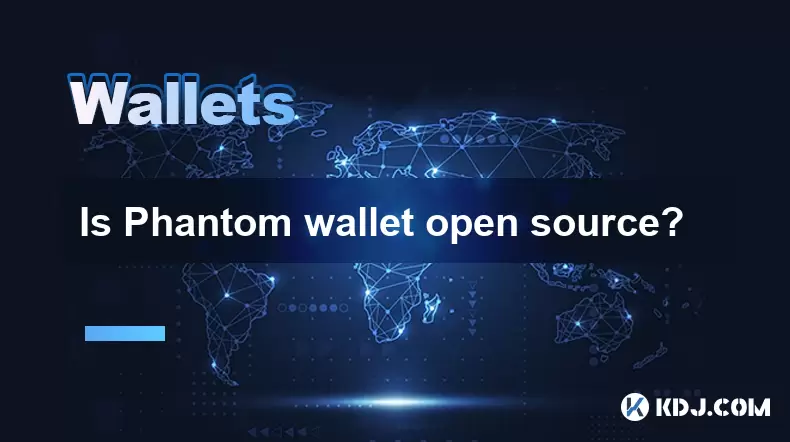
Is Phantom wallet open source?
Jul 03,2025 at 12:29am
What is Phantom Wallet?Phantom wallet is a non-custodial cryptocurrency wallet primarily designed for the Solana blockchain. It allows users to store, send, receive, and interact with decentralized applications (dApps) on the Solana network. The wallet is available as a browser extension and mobile application, offering a seamless experience for both be...
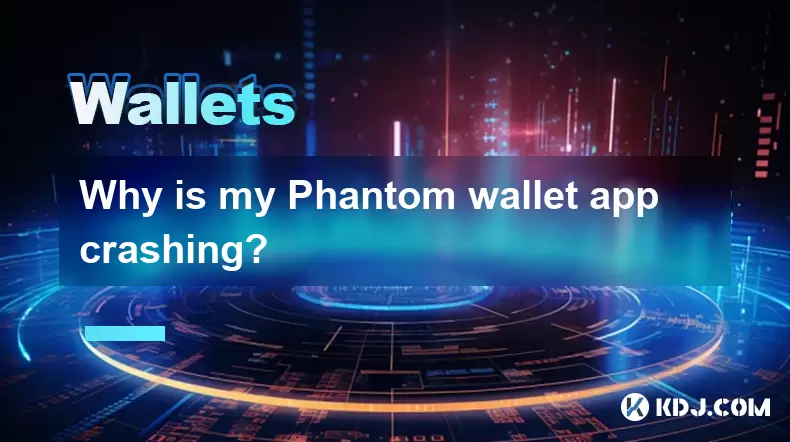
Why is my Phantom wallet app crashing?
Jul 02,2025 at 07:35pm
Understanding Phantom Wallet App CrashesIf you're experiencing issues with the Phantom wallet app crashing, you're not alone. Many users have reported similar problems, especially during high network activity or after recent updates. Phantom is a popular Solana-based wallet that allows users to store, send, and receive SOL tokens as well as interact wit...
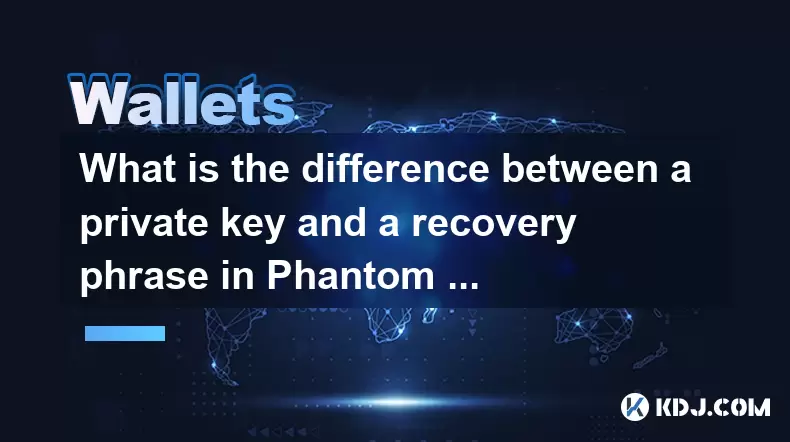
What is the difference between a private key and a recovery phrase in Phantom wallet?
Jul 02,2025 at 09:57am
Understanding the Basics of Phantom WalletPhantom wallet is a non-custodial digital wallet primarily used for interacting with the Solana blockchain. It allows users to store, send, and receive SOL tokens and other digital assets like NFTs. Non-custodial means that the user retains full control over their private keys and recovery phrases. Understanding...
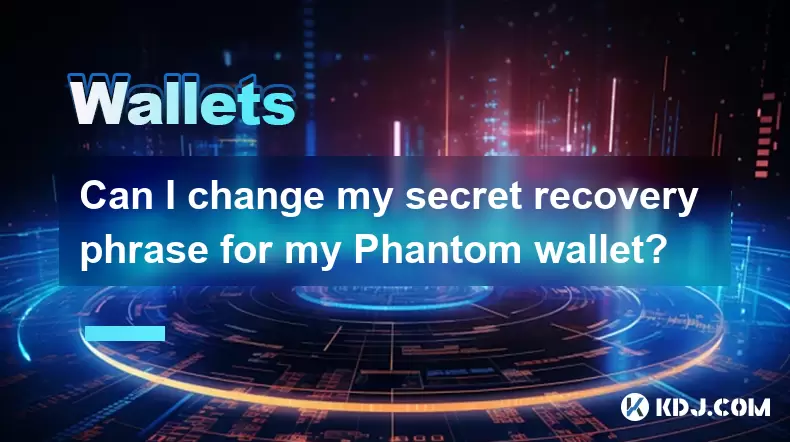
Can I change my secret recovery phrase for my Phantom wallet?
Jul 02,2025 at 12:07pm
Understanding the Role of a Secret Recovery PhraseThe secret recovery phrase, often referred to as a seed phrase, is a critical component in managing cryptocurrency wallets like Phantom. It serves as a backup mechanism that allows users to recover their wallet and associated assets if they lose access to their device or password. Typically, this phrase ...
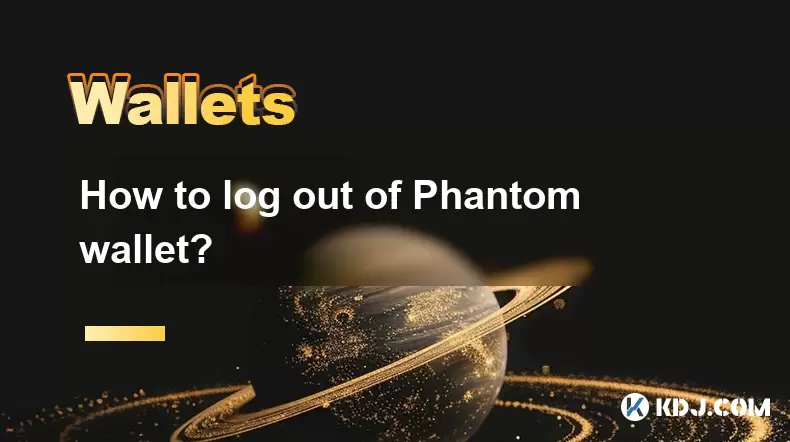
How to log out of Phantom wallet?
Jul 02,2025 at 05:28pm
What Is Phantom Wallet?Phantom wallet is a popular non-custodial cryptocurrency wallet designed primarily for the Solana blockchain, offering users the ability to store, send, and receive SOL and SPL tokens. It also supports integration with decentralized applications (dApps) and allows users to participate in staking, governance, and NFT trading. Being...

What is "rent" on Solana and how does it affect my Phantom wallet?
Jul 02,2025 at 08:35pm
Understanding 'Rent' on SolanaIn the context of Solana, the term 'rent' refers to a storage fee that users pay for maintaining data on the blockchain. Unlike Ethereum, where storage costs are paid once via gas fees during contract deployment, Solana implements a recurring cost model to ensure efficient usage of network resources. This means that any acc...

Is Phantom wallet open source?
Jul 03,2025 at 12:29am
What is Phantom Wallet?Phantom wallet is a non-custodial cryptocurrency wallet primarily designed for the Solana blockchain. It allows users to store, send, receive, and interact with decentralized applications (dApps) on the Solana network. The wallet is available as a browser extension and mobile application, offering a seamless experience for both be...

Why is my Phantom wallet app crashing?
Jul 02,2025 at 07:35pm
Understanding Phantom Wallet App CrashesIf you're experiencing issues with the Phantom wallet app crashing, you're not alone. Many users have reported similar problems, especially during high network activity or after recent updates. Phantom is a popular Solana-based wallet that allows users to store, send, and receive SOL tokens as well as interact wit...

What is the difference between a private key and a recovery phrase in Phantom wallet?
Jul 02,2025 at 09:57am
Understanding the Basics of Phantom WalletPhantom wallet is a non-custodial digital wallet primarily used for interacting with the Solana blockchain. It allows users to store, send, and receive SOL tokens and other digital assets like NFTs. Non-custodial means that the user retains full control over their private keys and recovery phrases. Understanding...

Can I change my secret recovery phrase for my Phantom wallet?
Jul 02,2025 at 12:07pm
Understanding the Role of a Secret Recovery PhraseThe secret recovery phrase, often referred to as a seed phrase, is a critical component in managing cryptocurrency wallets like Phantom. It serves as a backup mechanism that allows users to recover their wallet and associated assets if they lose access to their device or password. Typically, this phrase ...

How to log out of Phantom wallet?
Jul 02,2025 at 05:28pm
What Is Phantom Wallet?Phantom wallet is a popular non-custodial cryptocurrency wallet designed primarily for the Solana blockchain, offering users the ability to store, send, and receive SOL and SPL tokens. It also supports integration with decentralized applications (dApps) and allows users to participate in staking, governance, and NFT trading. Being...
See all articles

























































































